The Rise of Toxic "That Parent" Culture
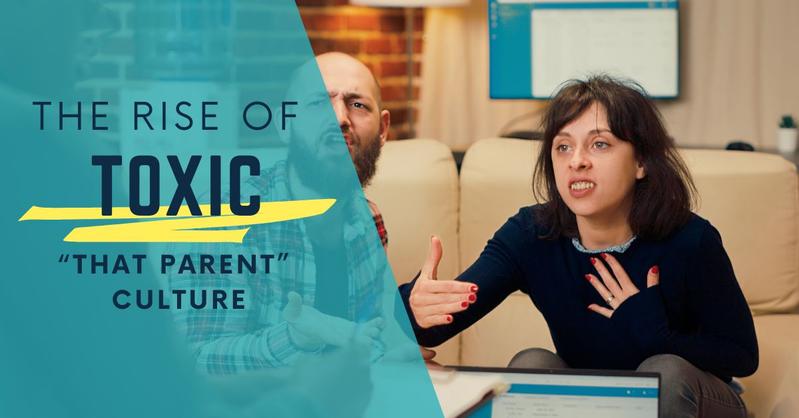
Trigger warning this article briefly mentions sexual abuse and self-harm.
If you spend any time on social media, you’ve probably seen it: influencers and parents proudly declaring themselves as That Mum or That Parent, you know, the ones who fire off angry emails, challenge every school policy, and make life difficult for teachers.
It’s framed as advocacy, but from a teacher’s perspective, it often feels more like intimidation. As an educator with over 15 years of experience, I’ve worked with countless wonderful, engaged parents who genuinely want the best for their children. But I’ve also seen the damaging impact of combative, ‘menacing’ behaviour toward teachers and schools.
And here’s the truth: this trend isn’t just exhausting for teachers , it’s hurting students too.
Try my decodable readers for free just click here

The Dangerous Trend of 'That Parent' Culture Online
The "That Parent" trend happening online is dangerous. With school just going back here in Australia, I have witnessed some disturbing social media posts about teachers.
One business posted part of an email to her child's school, and around that email wrote things such as "I'm going to be a menace," "if you want to menace your child's school but not sure how, contact me for tips."
Not only was this post concerning, but the comments were even worse. Women were writing things such as -
- "You're my hero,"
- "I have already written an angry email,"
- "Oooh I can't wait to do some menacing."
The worst part? This person's business is copywriting. She knew exactly what she was doing when she chose her words. She knew the message she was sending. Encouraging parents to actively harass teachers isn’t advocacy, it’s bullying. And when parents rally behind this kind of behaviour, it sets a dangerous precedent that harms not just teachers, but the entire school community.
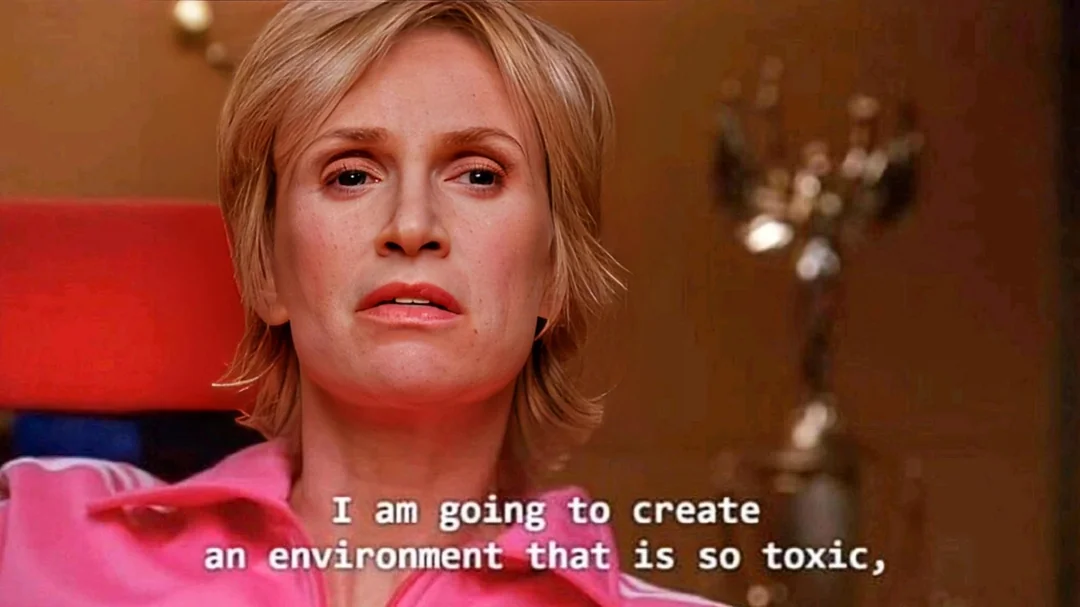
Another post I saw was from a social media account whose name is 'That Parent' and whose profile says 'Solidarity for others being "that" parent.' In what world is this okay? In the rise of divisive online culture, it's important to call out hate, so our communities don't become more and more divided.
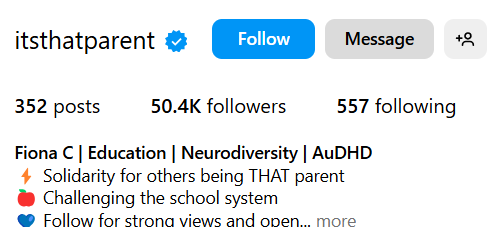
When Advocacy Crosses the Line
Parents absolutely should advocate for their children. No teacher or school is perfect, and when real concerns arise, they should be addressed. But there’s a difference between advocating for a child and antagonising their teachers.
✔️ Advocacy is reaching out with concerns and working with educators to find solutions.
❌ Antagonism is writing hostile emails, demanding exceptions, and assuming teachers are the enemy.
✔️ Advocacy is understanding that teachers are professionals who care deeply about their students.
❌ Antagonism is assuming the worst, spreading misinformation, and encouraging others to ‘fight’ the school.
✔️ Advocacy is asking for a meeting to discuss your child’s progress and coming prepared with questions and possible solutions.
❌ Antagonism is storming into the school office demanding to see the principal immediately without an appointment.
✔️ Advocacy is working with the teacher to implement strategies that will help a struggling student succeed.
❌ Antagonism is threatening to call the education department or media over a single disagreement without first attempting a resolution.
✔️ Advocacy is engaging in respectful dialogue about school policies.
❌ Antagonism is launching a social media smear campaign against a teacher or school staff member.
The Real Impact on Teachers and Schools
The rise of ‘That Parent’ culture is more than an online trend. it’s contributing to burnout and teacher attrition. Educators are leaving the profession in record numbers, citing unrealistic expectations, student behaviour, lack of support, and increasingly hostile interactions with parents as key reasons.

When teachers are constantly on the defensive, they have less time and energy to focus on what truly matters—helping students succeed. Schools aren’t perfect, but neither is launching a personal crusade against every perceived slight
At one workplace, we had a mum who was so difficult, it was an unwritten rule that if you taught one of her four children, you wouldn't have to teach another because her behaviour was so horrid. Myself and another teacher started up a free maths tutoring group for all students in the school to support those that weren't meeting the expected standard.
We ran this group out of our own goodwill—we didn't receive any extra pay, perks, or thanks! This parent still found things to complain about! She made running the group a dreaded experience rather than a positive one.
Eventually, we stopped running the class not just because of the experiences with this parent, but also due to those who failed to pick their children up on time, sometimes arriving 20 to 30 minutes late, waltzing in with a coffee saying "time just got away from them." I understand life happens, but we weren’t providing free childcare. After being at school from 6:30 am to now 4:30 pm (a now 10-hour day), we were well and truly ready to head home to our own families.

Try my decodable readers for free just click here

Teacher 'Bashing' Isn't New, But It Used to Be Limited
I dread NAPLAN testing and results time in Australia. The media has a field day with complaining about teachers.
- "Teachers get paid too much"
- "Teachers don’t do this"
- "Teachers don’t do that"
- "It’s all the teachers' fault."
They fail to report the real issue—government policies and funding. Since the Gonski Review started in 2011 and provided recommendations on how school funding should be used to improve student outcomes, there has still not been a change. It is a fact that public education is underfunded, and the funding system is not equitable, with more funding going to private schools, where students already have access to high-quality resources and achieve better outcomes.

Recent data highlights a concerning trend in the Australian education sector, with significant numbers of teachers leaving the profession and many experiencing high levels of stress that necessitate counselling or stress leave. A Monash University study found that up to 70% of Australian teachers are contemplating leaving due to increased workloads and intensified expectations, especially post-COVID-19, with estimates suggesting that 30% to 50% exit within their first five years. Over half of surveyed teachers reported feeling very or extremely stressed, with early career teachers, primary educators, and those in rural or remote areas facing the highest burnout levels.
More than 50% suffer from anxiety, nearly one-fifth experience depression, and in South Australia alone, over the past decade, nearly 7,400 education workers have been awarded more than $169.1 million in workers' compensation, with over half of the claims related to stress-induced injuries. These alarming statistics underscore the urgent need for systemic changes to support educators, address the root causes of stress, and improve teacher retention in Australia.
The Rise of "That Parent" Culture
The rise of “that parent” culture isn’t limited to Australia. Schools in England now have “vexatious and malicious” complaints policies. The policies outline how the school will respond and deal with complaints. Proving that time-wasting complaints are increasing a problem.
Some of these “that parents” would argue that this is because schools are underperforming and that's why there is a rise in complaints. I suspect the increase in complaints comes down to the access parents now have to their children’s teachers. In days past, you needed to speak with your child’s teacher in person or write an actual letter.
Now you can direct message them via class dojo, or seesaw, write an email, complain on social media or, even create a smoke signal if you want.

You’d be surprised how many of these emails come in the late hours of the evening, after a difficult day, (and I hazard a guess a few too many glasses of wine) and no thought to how the correspondence would be received, or the ongoing ramifications. All over something as small as a missing homework sheet, jumper, or an uneaten banana. But the issue is so egregious they have CC’d the principal, their attorney, the education department, and possibly the prime minister.

Little do these malicious complainers know that teachers are dealing with “actual” problems daily. They might have forgotten to let you know your child didn’t like their crunch and sip today, but you don’t know that they spent two hours on the phone to DCP after a student made a disclosure about sexual abuse, and they have spent the entire day trying not to cry in front of their class (they did cry in the staffroom, the toilet, and their car on the way home from school).
Or you may assume your child’s teacher doesn’t care or isn’t doing enough when you tell them your child had hurt feelings when someone made a vaguely mean comment as kids do (this is not bullying fyi). But they don’t know that two children in your class are stealing sharpeners from the art room, so they can take the blades out and self-harm in the toilet at recess and lunch. They don’t know that not only are you a teacher you are also now a mental health nurse and have to refuse to let these students go to the toilet in class time in case they aren’t really going to use it for its intended purposes.
Parents don’t know that over my years I have experienced being kicked, punched, spat on, called everything under the sun, had knives and a gun brought to school, had personal property stolen or destroyed, and threatened with rape . This is just from the students!
I have experienced verbal abuse, physical intimidation, cyberbullying, cyberstalking, and more from parents.
Ordinary Australians might assume this is untrue or at best doesn’t happen often. I can assure you this is happening in a primary school near you regularly - perhaps even every day.
You might think these stories are rare but they aren't . I could write a hundred more but I think you get the point.
Try my decodable readers for free just click here

Parent Perspectives of School
Parents assume they understand schools and education because they went to school. But they are viewing school through the lens of a child, from a perspective that is 20 to 30 years old.
Schools today are better than they have ever been, thanks to advancements in educational research, resources, and a deeper understanding of how students learn. Modern classrooms have access to evidence-based teaching strategies, personalised learning approaches, and specialised support for diverse learning needs. Teachers are better trained than ever, with ongoing professional development that equips them with cutting-edge techniques to support student success.

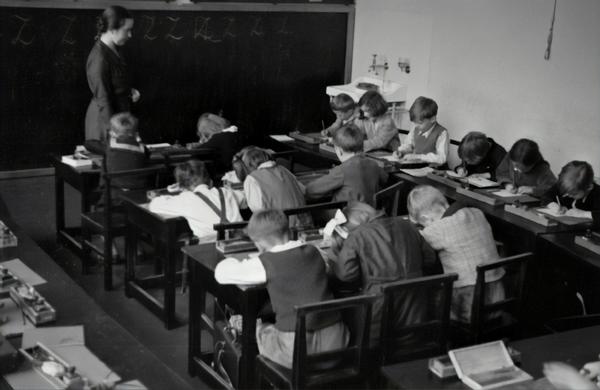
Technology has revolutionised education, providing interactive tools, online resources, and data-driven insights that help tailor instruction to individual students. We now understand far more about cognitive development, learning disabilities, and mental health, allowing schools to provide targeted interventions that ensure no student is left behind.
While challenges remain, the reality is that today’s schools are more inclusive, well-equipped, and informed than at any other time in history.
Try my decodable readers for free just click here

The Serious Impact on the Whole School Community
I once took over a class halfway through the year, and one mother had concerns about her dyslexic son. Instead of coming to me directly to discuss them, she decided—without reviewing his work or meeting with me—that I wasn’t teaching him properly. She then privately messaged multiple parents in my class, questioning my abilities and stirring doubts. Eventually, she took her grievances to a parents' Facebook group, where she wrote damaging posts about me and the principal. Thankfully, I was able to screenshot these posts and report them, but when I approached my principal, she told me to “just ignore it.”
Her response wasn’t due to lack of care—she was struggling with her own mental health, after experiencing similar online harassment from parents. The emotional toll on both myself and my principal was profound, affecting our ability to perform our jobs at our best.
And the student? He was thriving. He received an excellent report, proving that all of this could have been avoided if his mother had simply come to me first.
A Memorable Encounter with 'That Parent'
One of the most memorable encounters I had was with a dad who took his role as academic enforcer very seriously. During a school learning journey, he sat down and meticulously went through every single one of his son’s school books, including maths books, checking the answers to his son’s Grade 2 work with a calculator.

This was unusual behaviour and it was even more intimidating when he was a 6'5" ex-wrestler who used to wrestle with The Rock ( I didn’t believe it either until his son brought in a newspaper article as proof).
To say he was giving off "that parent" vibes would be an understatement. But once he was satisfied that I had marked his son’s work correctly and was “doing my job right,” we developed a wonderful working relationship.
Even now, I still bump into him at the local shops, and we have a friendly chat. It’s a great reminder that even “That Parent” can come around when trust is built.
How to Be an Effective Advocate (Without Being “That Parent”)
So, what’s the alternative? If you truly want to support your child’s education, here’s what actually works:
- Start with respect. Assume positive intent from teachers—99% of us are here because we care deeply about our students.
- Communicate, don’t confront. A polite, well-structured email will always get better results than an aggressive one, or better yet talk in person or on the phone.
- Trust the expertise of educators. Teachers have years of training and experience in education, collaborate with them instead of treating them as the enemy.
- Encourage solutions, not drama. The goal should be to work with schools to improve learning outcomes, not to ‘win’ an argument.
For more support head to this article - Speak Up: A Parents guide to advocating for your child in school. https://wiseowltuition.com/blog/88959-speak-up-a-parent-s-guide-to-advocating-for-your-child-in-school
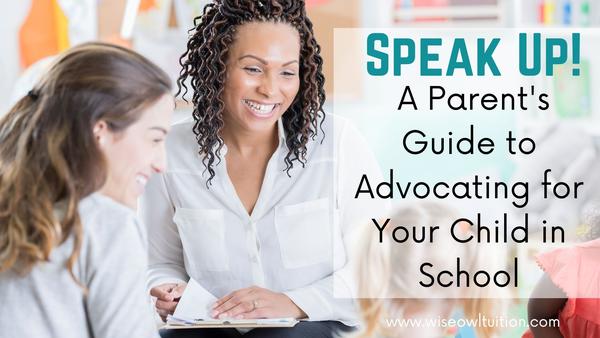
Teachers Need Support, Not Scorn
Education works best when teachers and parents are on the same team. Instead of celebrating hostility toward teachers, let’s shift the focus to constructive collaboration—because when teachers are supported, students thrive.
Remember schools are a reflection of society, if we want a better environment for our kids then we need to be an example.
Let’s promote being the parent who uplifts, supports, and collaborates, not the one who makes teaching even harder. If you want guidance on how best to advocate for your child - read this article.
Are you a teacher who has experienced this trend firsthand? I’d love to hear your thoughts.
Drop a comment below!
Try my decodable readers for free just click here

If this article has brought anything up for you, the following places can help:
Beyond Blue – Provides support, information, and resources for people experiencing anxiety, depression, and other mental health challenges. Offers a 24/7 helpline and online forums.
Website: https://www.beyondblue.org.au
Lifeline Australia – A crisis support and suicide prevention service that operates a 24/7 helpline (13 11 14) and offers text and online chat support.
Website: https://www.lifeline.org.au
Headspace – Focuses on youth mental health, offering counselling and support services for young people aged 12–25. Has centres across Australia and online/phone services.
Website: https://headspace.org.au
Black Dog Institute – A research-based organisation dedicated to understanding, preventing, and treating mental illness. Provides online resources and digital mental health tools.
Website: https://www.blackdoginstitute.org.au
SANE Australia – Supports Australians affected by complex mental health issues with online forums, counselling, and peer support services.
Website: https://www.sane.org


0 comments
Leave a comment
Please log in or register to post a comment